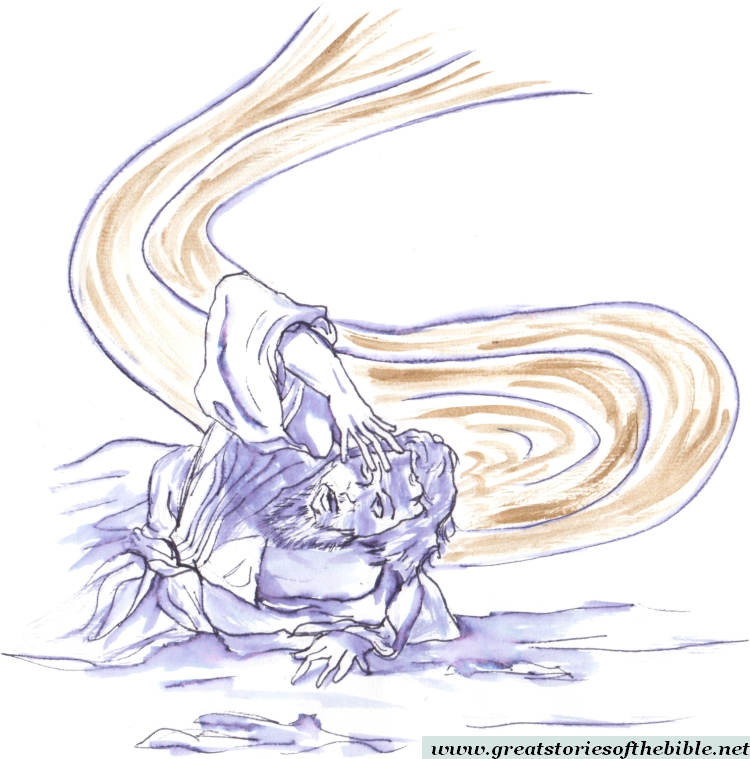Acts - episode 2
Why do you persecute me?
We continue the reading of the Acts of the Apostles, starting to tell Saul/Paul’s story (I will explain the motivation for his double name in the next post). He is «a Jew, born in Tarsus of Cilicia, but brought up in this city [Jerusalem] at the feet of Gamaliel, instructed according to the strict manner of the Law of our fathers, being zealous for God» (Acts 22,3); his place of origin gave him the privilege of Roman citizenship (see Acts 22,28), that will be important in the future events that will involve him. His first mention in the Book is in the narration of the death of Stephen, the first Christian martyr who is stoned while «The witnesses placed their mantles at the feet of a young man named Saul» (Acts 7,58). «Saul was consenting to his death. A great persecution arose against the Church which was in Jerusalem in that day. They were all scattered abroad throughout the regions of Judea and Samaria, except for the apostles. Devout men buried Stephen, and lamented greatly over him. But Saul ravaged the Church, entering into every house, and dragged both men and women off to prison» (Acts 8,1-3). Saul picked up the persecutors’ violent initiative (see the symbolic gesture of looking after someone’s mantle); what he does not know is that Stephen’s testimony, who died like Jesus entrusting his spirit to God and forgiving the oppressors (see Luke 23,34.46 and Acts 7,59-60), put in action a force that is more powerful than his. «Christians’ blood is a seed», Tertullian wrote in the II century (Apologeticum 50,13): mysteriously, that seed will bring great and unexpected fruit in Saul’s life.
«But Saul, still breathing threats and slaughter against the disciples of the Lord, went to the high priest, and asked for letters from him to the synagogues of Damascus, that if he found any who were of the Way, whether men or women, he might bring them bound to Jerusalem. As he traveled, it happened that he got close to Damascus, and suddenly a light from the sky shone around him. He fell on the earth, and heard a voice saying to him, “Saul, Saul, why do you persecute me?”
He said, “Who are you, Lord?” The Lord said, “I am Jesus, whom you are persecuting. But rise up, and enter into the city, and you will be told what you must do.” The men who traveled with him stood speechless, hearing the sound, but seeing no one. Saul arose from the ground, and when his eyes were opened, he saw no one. They led him by the hand, and brought him into Damascus. He was without sight for three days, and neither ate nor drank» (Acts 9,1-9). The resurrected Jesus is so intimately joined to His Church that everyone who persecutes a Christian persecutes Jesus Himself; see Matt 18,20: «For where two or three are gathered together in my name, there I am in the midst of them»; see too Matt 25,40: «Truly I tell you, inasmuch as you did it to one of the least of these my brothers, you did it to me». The spiritual blindness that until now obscured Saul’s mind and heart here becomes even exterior.
«Now there was a certain disciple at Damascus named Ananias. The Lord said to him in a vision, “Ananias!” He said, “Behold, it’s me, Lord.” The Lord said to him, “Arise, and go to the street which is called Straight, and inquire in the house of Judas for one named Saul, a man of Tarsus. For behold, he is praying, and in a vision he has seen a man named Ananias coming in, and laying his hands on him, that he might receive his sight.” But Ananias answered, “Lord, I have heard from many about this man, how much evil he did to your saints at Jerusalem. Here he has authority from the chief priests to bind all who call on your name.” But the Lord said to him, “Go your way, for he is my chosen vessel to bear my name before the nations and kings, and the sons of Israel. For I will show him how many things he must suffer for my name’s sake.” Ananias departed, and entered into the house. Laying his hands on him, he said, “Brother Saul, the Lord, who appeared to you on the road by which you came, has sent me, that you may receive your sight, and be filled with the Holy Spirit.” Immediately something like scales fell from his eyes, and he received his sight. He arose and was baptized. He took food and was strengthened» (Acts 9,10-19). Jesus’ message worked in Saul’s spirit, producing an amazing conversion: he received the light of the Faith, through the laying on of hands and Baptism (the first Christians called it “enlightenment“); the recovered sight is the symbol of the occurred inner transformation.
Saul, now sent by Jesus, preaches in Damascus, but he has to flee due to the death menaces of the Jews (Acts 9,19-25). Then he goes to Jerusalem, where he is introduced to the apostles; even from there he has to move, taking refuge in Tarsus because of the persecution provoked by the preaching to the Greek speaking Hebrews («the Hellenists»: Acts 9,26-30). We can find the story of his conversion twice more in the Acts of the Apostles (in chapter 22 and 26): I invite you to read them to find similarities and differences in their composition. In the second narration Saul speaks to the Hebrew people of Jerusalem (underlining the continuity between Judaism and Christianity), while in the third to King Agrippa II (explaining that the Faith in Jesus’ resurrection is the main motive of clash between the two religions).
In the next post we will start to write about Saul’s missionary journeys.